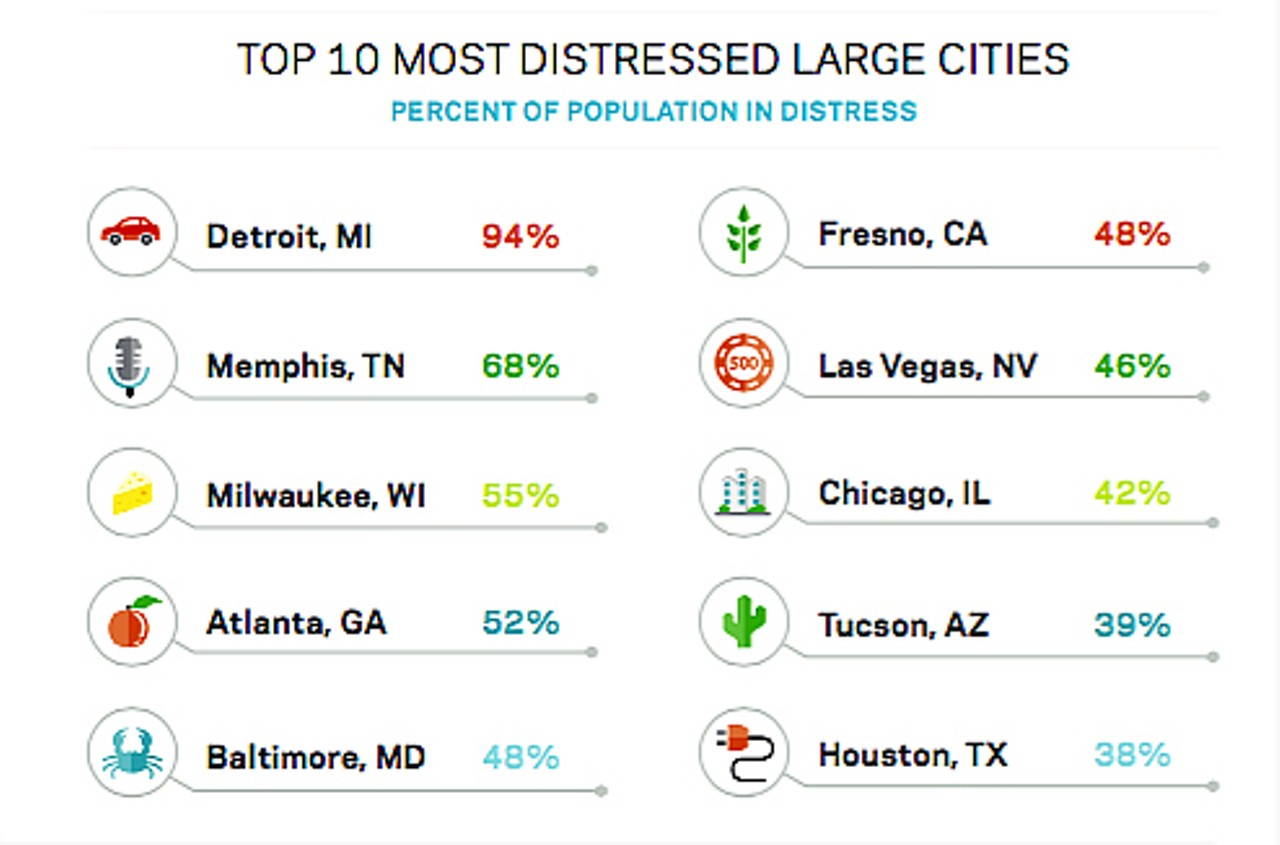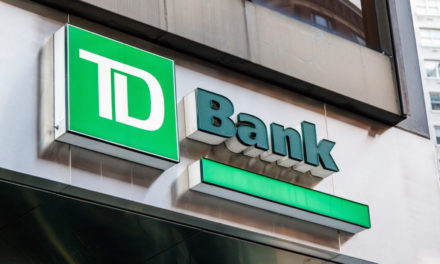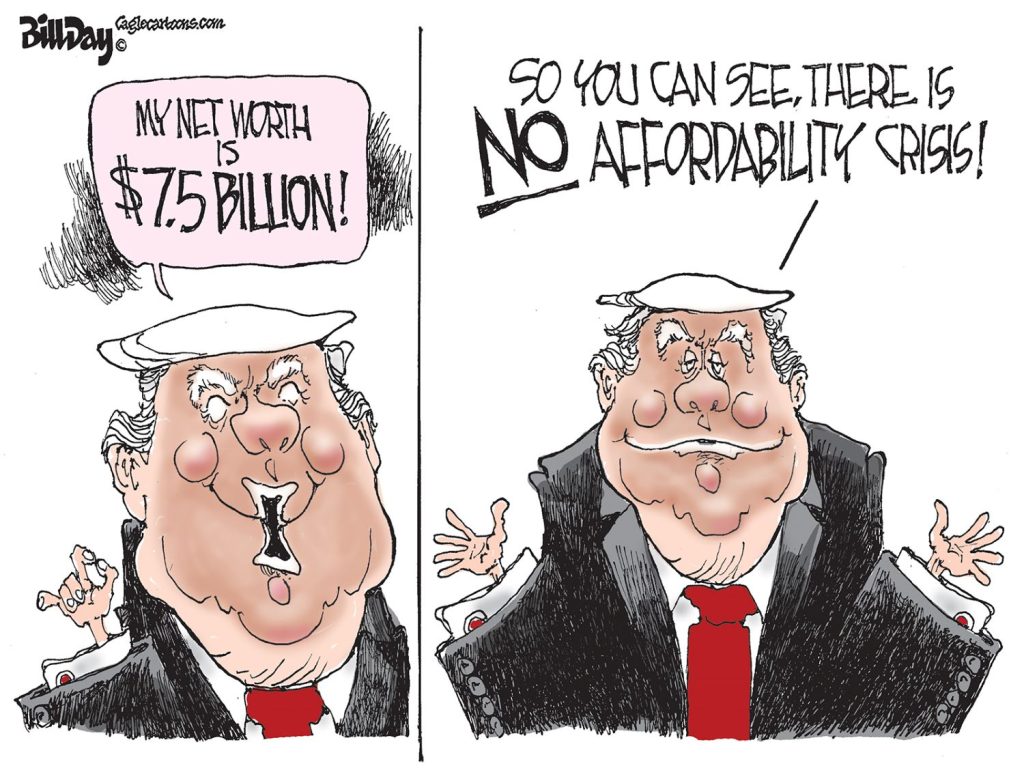
It never mattered who would win the election for mayor when it came to one thing: the next four years will be a time of Biblical proportions.
Somewhere between the plagues of Exodus and the suffering of Job.
That’s because the mayor’s term starting January 1 will be the toughest in the modern history of Memphis. The locusts will come in the form of higher bond payments, a slowly recovering economy, ballooning pension obligations, and slow growing revenues, not to mention the reality that the budgets of only two of city government’s 12 divisions – police and fire – are $70 million more than all of the sales and property taxes together.
Put simply, the next four years will be a time of austerity.
Bills Coming Due
There will be little money for new programs, there will probably be budget cuts to some services to pay balloon notes coming due, and after a campaign dominated by talk about crime, it’s a safe bet that police budgets will rise yet again.
Then there are pension payments. Spurred on by a letter from Tennessee Comptroller Justin Wilson demanding full funding of these liabilities, city government increased pension payments in the last two years from $20 million a year to $46.5 million, but it has to reach a total of $75 million within this term of office. If that’s not enough, city government will also need to pay rising debt costs, which by 2019 will be $40 million more than today.
As if city government needed any more reality checks, Brookings Institution ranks Memphis #88 among the 100 largest metro areas for recovery from the Great Recession, and projects that the Memphis MSA won’t get back to pre-recession levels for jobs and economic until the last quarter of 2017.
Add to this the budget complications that stem from the fact that so much of the land inside the city limits doesn’t pay property taxes. There are of course the 239 PILOT projects whose city taxes have been waived to the tune of $35 million a year: 75 projects by EDGE, 101 by Downtown Memphis Commission, and 63 by Health, Educational, and Housing Facilities Board. In comparison, Nashville has granted 15 PILOTs, Knoxville 14, and Chattanooga 60.
A Clearer Picture of the Future
But even more than PILOTs, the city’s revenues are diminished by universities, hospitals, and the array of nonprofits which are tax-exempt. In Memphis, about seven percent of all parcels do not pay taxes, compared to three percent in Nashville.
While budget pressures will require the patience of Job in City Hall, they pale in comparison to the biggest challenge of all: convincing a skeptical public that city government can in fact lead Memphis to better days. In a Commercial Appeal poll, only one in three Memphians said the city is headed in the right direction, and other polling indicates that what Memphians want most from City Hall is a compelling vision backed by a well-defined agenda that paints a clear picture of what Memphis will look like as a result.
On the campaign trail, all candidates for mayor agreed that crime, poverty, blight, and jobs are top priorities for city government, but in the face of the city’s budget realities, the real test for city elected officials is how to make substantial progress without any money.
Metric and Anecdotal Memphis
More and more, they will look to philanthropies and neighborhood activists to drive change, which is why all the work these days by guerilla urbanists and pop-up leaders could not have come at a better time. The best news is that they give an alternative narrative to “metric Memphis,” where a stream of urban data shows that Memphis is running in place and remains toward the bottom in the rankings for the 51 largest metros in talent, patents, educational attainment, income, and poverty.
In “anecdotal Memphis,” where upbeat stories of grassroots trailblazers and young leaders seem endless, there is a powerful undercurrent of optimism, creativity, and action. These people shirk off the tradition in Memphis of looking to government for answers to every problem. They ask no one for permission, they genuflect to no authority, they express their opinions honestly, and best of all, they are working hard to create the city in which they would want to live.
They act on the belief that they can accomplish whatever they set out to do, and they show little patience for rehashing the past or undermining progress with a negative attitude about their hometown. But what they do best is act with a palpable sense of urgency.
It’s an example that City Hall would be wise to emulate.
Published as the City Journal column in Memphis magazine in its November, 2015, edition.
***
Join us at the Smart City Memphis Facebook page for daily articles, reports, and commentaries that are relevant to Memphis.






Your article said…
“…not to mention the reality that the budgets of only two of city government’s 12 divisions – police and fire – are $70 million more than all of the sales and property taxes together.”
My Comment:
And the Mayor-elect Strickland spent of his “half-million dollars of campaign funds” encouraging a overwhelming turnout of republican oriented voters from his District 5 precincts to overcome a seven-way split of the Democratic oriented voters who are in fact the majority voters in Memphis. Now, he has to perform another magic act to again fool the MAJORITY VOTERS for maybe another “two years” – because if political hell breaks loose he could get recalled!
One stupid way to accelerate “political hell” – hire 300 more cops while re-implementing “Blue Crush” which is nothing more than “overtime salary subsidies for cops primarily writing meter maid tickets for speeding!” (Law Enforcement in North Mississippi don’t practice this speed law enforcement foolishness and has almost the same population densities as Shelby County.)
BTW, SPEEDING, unbelievably, is NOT an overwhelming statistically significant CAUSE (2.7%) of all traffic accidents… most accidents in Tennessee occur at intersections and are the result of 1) disregarding the stop sign or traffic light; 2) improper right or left turns! Now, ask a COP how many of their most memorable tickets were written for one of these two reasons?
Realistically, there are going to have to be both cutbacks in services and an increase in taxes. That is the reality that the new people elected to city offices this time bought into when they decided to run in this year’s elections although they probably did not realize it at the time. Probably the first thing to do would be to launch another effort to gain voter approval of a one-half-cent increase in the local sales tax rate. The last effort was rejected by voters in November 2013. City officials had pledged to apply the new revenue to pre-kindergarten program funding. This time around, it appears the proposal should be focused on using a major part of the new revenue to restore part of the city employe benefits that were cut. The employees would be a built-in source of support. Public safety employees appear particularly to have a high level of support in the community. The county’s suburban municipalities approved the half-cent increase a few years back to provide local funding for their new school systems. The local sales tax rate in the municipalities is 2.75 percent while it remains 2.25 percent in Memphis and the unincorporated areas. Memphis officials would need to be careful and not make any hard pledge on more than half of the revenue from a one-half-cent increase. If Memphis voters approved the one-half-cent increase, the County Commission would probably at some point in the near future call for a referendum in the unincorporated areas, which if approved by voters would shift the one-half cents to the countywide sales tax rate. If the one-half cents became a countywide tax, state law would require that half the revenue go to public schools across the county on an average daily attendance basis.
I think Memphis also will need an increase in property taxes during the next four years or the city will face a very dire situation in terms of services it offers. If Memphis residents and their representatives in city government don’t want to pay higher taxes they need to start deciding what services they want to eliminate or cut back.
Good posting and a succinct analysis of a bleak future. Memphis is fucked!